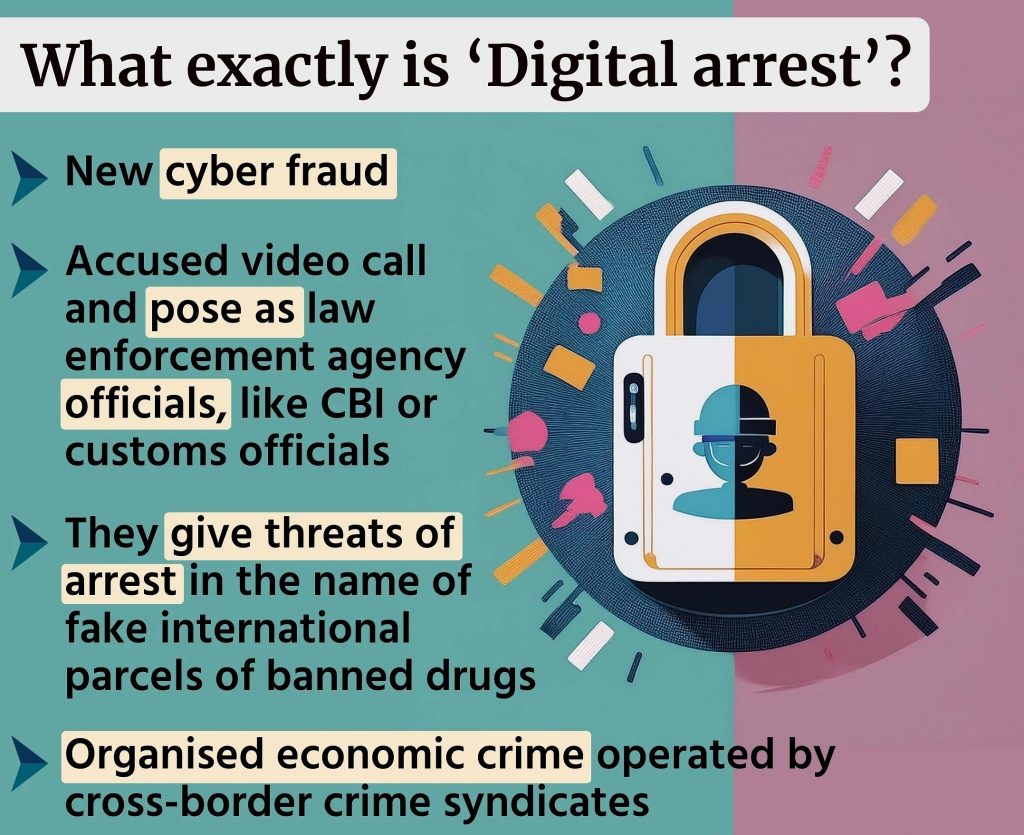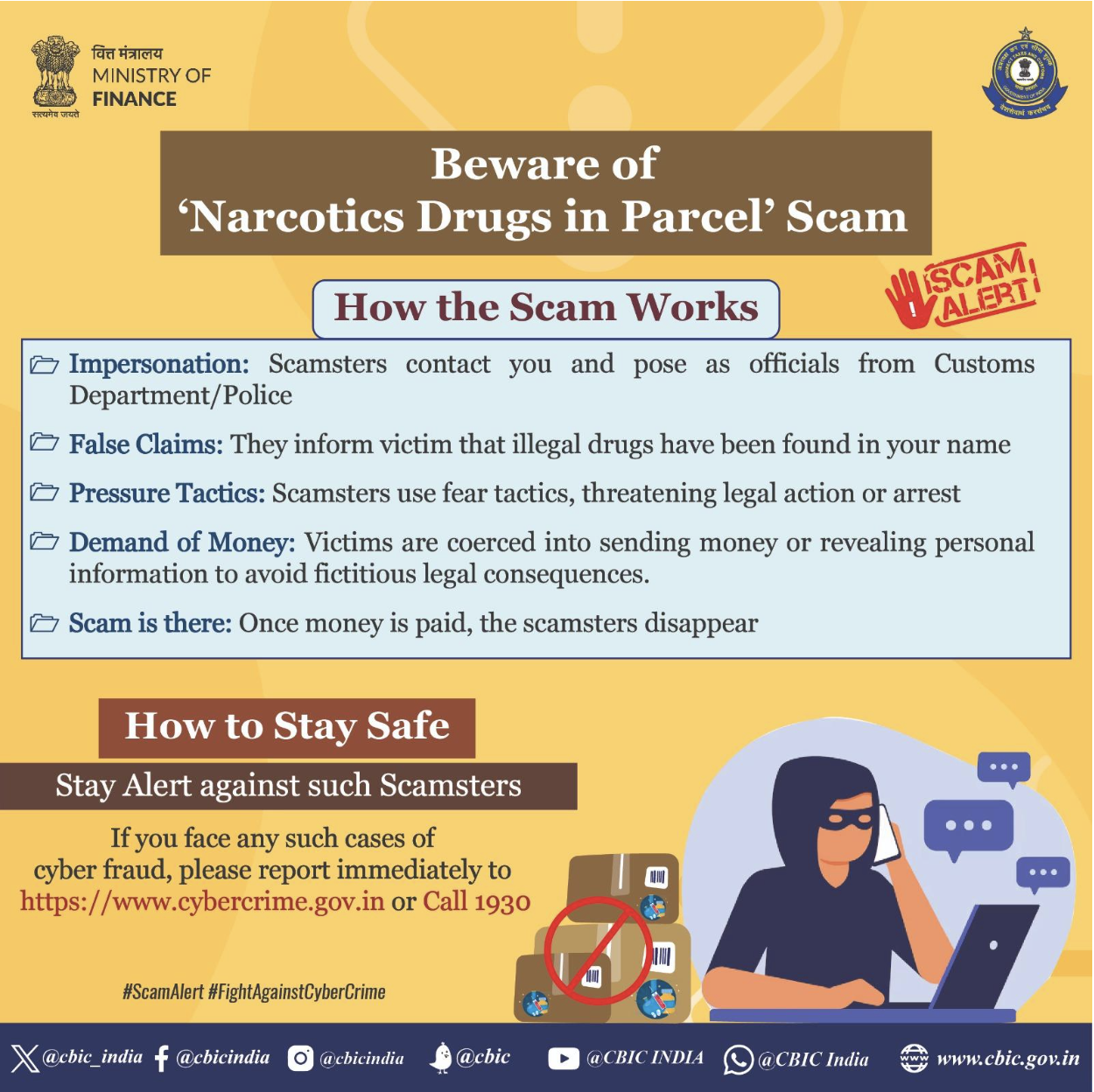Mumbai to China parcel: How an engineer lost Rs 10 crore to Digital Arrest that went on for 19 days
Rohini-based retired engineer has become the latest victim of an online scam, losing a huge sum of Rs 10 crore over a period of 19 days. The incident serves as a reminder of the growing threat of “digital arrest” scams and the importance of online vigilance.
How the scam unfolded
A 77-year old retired engineer from Rohini recently revealed that his ordeal began on September 25, when he received a call from a courier company. “I usually don’t take calls from unknown numbers, but unfortunately, I did that day,” he told TOI.
The caller, impersonating a courier company representative, informed the engineer about a suspicious parcel addressed to him, originating from Mumbai and routed for China. The engineer, denying any knowledge of the parcel, was then connected to a purported Mumbai Police officer.
The victim then received a video call in which he saw a man sitting in front of a Mumbai Police logo. The officer explained the alleged parcel scam and requested the victim’s bank details for verification. The call was then transferred to another individual, who posed as a senior CBI officer, further pressurising the victim.
“He instructed me to move to a private room to avoid eavesdropping and asked me several questions. Then, he showed me documents, including one with my Aadhaar details and another ordering me not to leave the country,” said the victim.
The victim also revealed that the officer on the other end of the call warned him not to disclose the incident to his children or anyone else, threatening they would also face trouble. “They claimed my phone was under surveillance,” he said.
The following day, the victim was connected to an individual claiming to be an Enforcement Directorate officer. The officer assured the victim of assistance in the matter, further deepening the victim’s trust and confusion. Over the next 19 days, the scammers, maintaining their control over the victim, instructed him to transfer Rs 10.3 crore in three installments.
On October 14th, the scammers introduced a new twist, claiming that the victim’s brother was implicated in the investigation. This further pressured the victim, forcing him to involve his brother. Fortunately, the brother recognised the scam and convinced the victim to cease further payments.
He filed a complaint with the Rohini district police cyber cell. “I had had time to talk about the incident with my family and the cops, but I remained frightened. Even my wife was scared,” he said.
Background
The “digital arrest” scam is a sophisticated cybercrime where fraudsters impersonate law enforcement officials to intimidate and extort money from their victims. These scammers use realistic video calls, falsified documents, and threats of legal action to create a sense of urgency and fear, coercing victims into transferring money or disclosing sensitive information.
Modus Operandi
The engineer received a call from someone claiming to be from a courier company, informing him about a suspicious parcel from Mumbai to China. The caller connected him to a purported Mumbai Police officer, who then transferred the call to a fake CBI officer. The scammers coerced the engineer into transferring funds to avoid legal trouble, maintaining control through threats and intimidation.
How to Stay Safe: Do’s and Don’ts
Do’s:
- Verify Information: Always verify the authenticity of unsolicited calls or messages by contacting the official organization directly.
- Stay Calm: Scammers often create a sense of urgency to pressure victims into making hasty decisions. Stay calm and take your time to verify the information.
- Cross-Check: If you receive a suspicious call or message, try to verify the information with a trusted source, such as a government website or a known law enforcement agency.
- Report Suspicious Activity: Report any suspicious activity to the authorities and inform your bank or financial institution immediately.
Don’ts:
- Don’t Share Personal Information: Avoid sharing personal information or financial details with anyone over the phone or online unless you are absolutely certain of their identity and the legitimacy of their request.
- Don’t Trust Unknown Numbers: Avoid answering calls from unknown numbers, especially those with foreign area codes.
- Don’t Transfer Money: Do not transfer money or disclose sensitive information based on unsolicited calls or messages.
- Don’t Panic: Scammers rely on fear and intimidation to manipulate their victims. Stay calm and composed to avoid making hasty decisions.
Impact and Aftermath
The engineer, under the impression that his phone was under surveillance and fearing for his family’s safety, transferred Rs 10.3 crore in three installments over the next 19 days. It was only when his brother recognized the scam and convinced him to stop further payments that the engineer realized he had been deceived.
Lessons Learned
This incident serves as a stark reminder of the growing threat of digital arrest scams and the importance of online vigilance. Always verify the authenticity of unsolicited calls and avoid sharing personal information without confirmation from official channels.



